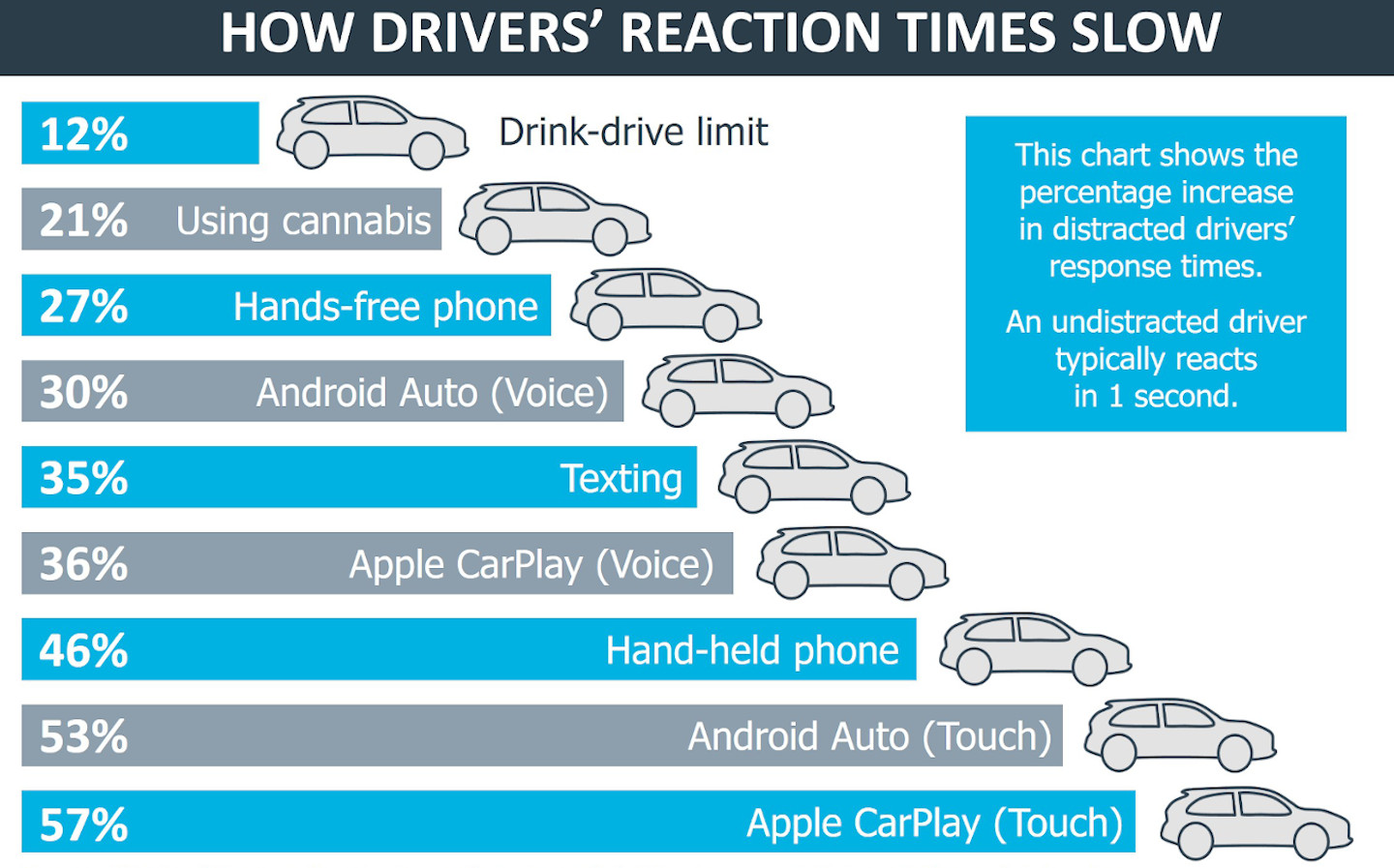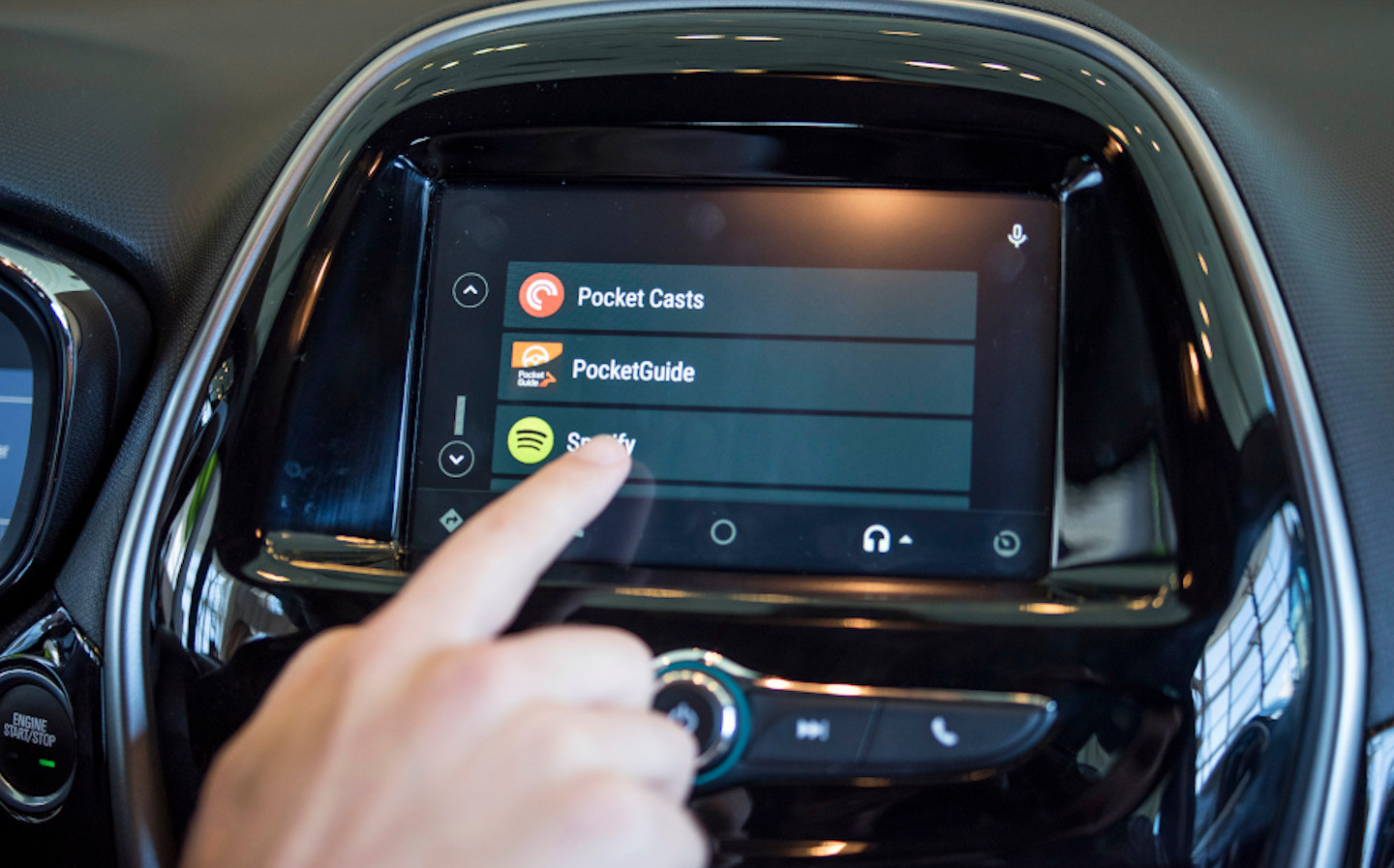Apple Carplay and Android Auto could be worse for reaction times than cannabis or alcohol, says study
Touch screens are spelling danger
A NEW STUDY has found that infotainment systems like Android Auto and Apple CarPlay have a bigger effect on reaction times than driving under the influence of alcohol or cannabis.
The study, commissioned by IAM RoadSmart, the UK’s largest independent road-safety charity, found that stopping distances, lane control and response to external stimuli were all negatively affected by the use of Android Auto and Apple CarPlay.
Worrying findings included that drivers took their eyes off the road for up to 16 seconds while using the infotainment systems. If driving at 70mph, this equates to around 500m (1,640ft) of driving. Impaired reaction times meant stopping distances at motorway speeds increased to an average of between four and five car lengths.
According to the study, using the touch control features of the infotainment systems had an even more adverse effect on reaction times than texting while driving.
In light of the worrying findings, Neil Grieg, policy and research director at IAM RoadSmart, said that the charity is calling on government and motor industry to now conduct their own tests and impose standards based on them.
“Driver distraction is estimated to be a factor in around a third of all road collisions in Europe each year,” he said. “While previous research indicates that Apple CarPlay and Android Auto perform better than more traditional buttons and controls, the results from this latest study raise some serious concerns about the development and use of the latest in-vehicle infotainment systems.
“Anything that distracts a driver’s eyes or mind from the road is bad news for road safety.”

The tests consisted of participants doing a series of three drives on a simulated test route. On the first drive they did not interact with the infotainment system at all, and on the second they only used the system’s voice control features. On the final drive, only the touch screen was used.
Both methods of controlling the infotainment systems were found to be distracting. Predictably, however, the touch screen was found by far to be the more dangerous.
While drivers realised that using the systems was distracting, and adjusted their driving by, for example, reducing their speed, they still struggled to maintain a constant distance to the car in front, react to outside occurrences, and stay in their lane. In both the voice-control and touchscreen tests, Apple CarPlay was found to be more distracting than Android Auto, delaying response times by 57% and 36% in the two tests respectively.
Both CarPlay and Android Auto were initially released in 2014 though have undergone redesigns and updates in the six years since. Both systems are compatible with most production cars released in the last few years. However Android Auto is notably not compatible with BMWs.
Another interesting, not to mention disconcerting, finding was that participants severely underestimated how long they were spending looking away from the road, sometimes by as much as five seconds — some drivers spent more than 12 seconds looking away from the road when using the touch control. Twelve seconds is an epoch when it comes to taking your eyes off the road at motorway speeds.
This is especially worrying as participants in the study said that they would use the touchscreen rather than voice control in real world driving. Some users of Android Auto have also found that faults in the software mean that voice control sometimes becomes difficult to use.
Driving.co.uk has approached Apple and Google for comment.
Tweet to @KieranAhuja Follow @KieranAhuja
Jeremy Clarkson: the Bentley Flying Spur and the motorsport event you’ve never heard of
Government makes changes to smart motorways after intense criticism





